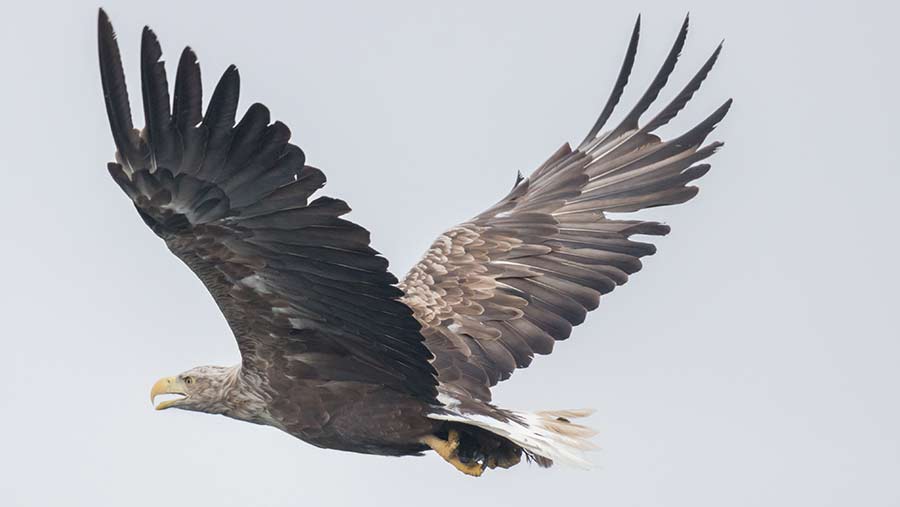Sea eagle reintroduction plans in Norfolk scrapped for 2022
 © Daniel Evans/Adobe Stock
© Daniel Evans/Adobe Stock Plans to reintroduce white-tailed eagles in Norfolk in 2022 have been abandoned, it has emerged.
Following a public consultation, Natural England had granted a licence to the Roy Dennis Wildlife Foundation and Wild Ken Hill to release up to 60 white-tailed eagles over 10 years, starting next year, with birds imported from Poland.
But in a statement published on its website, Wild Ken Hill said it had taken the “difficult decision” and reluctantly decided not to reintroduce the eagles as planned for the time being.
See also: Mixed reaction after Norfolk sea eagles project approved
Instead, the 1,618ha farm, based in Snettisham, said it would focus on other aspects of its “nationally significant” nature and regenerative farming project.
This includes rewilding, the release of beavers and working as a release site for Natural England’s curlew headstarting project.
People who supported the crowdfunding campaign to raise money for the white-tailed eagle project will be sent a refund.
Writing on his blog, former RSPB director and conservationist Mark Avery described the news as “very disappointing”, adding that many supporters of the project would view this as a “let-down”.
Wild Ken Hill apologised to the Roy Dennis Wildlife Foundation for the delay.
“We also would like to thank and apologise to those that supported this project when participating in the consultation, particularly the 91% of the general public that offered their support and the many land managers and conservation organisations that did the same,” said the statement.
But the estate said it continued to believe that the restoration of white-tailed eagles, also known as sea eagles, to eastern England is an “important and inevitable” conservation goal.
Isle of Wight release
Wild Ken Hill also wished the ongoing project to release sea eagles on the Isle of Wight continued success.
“We hope that dispersing juvenile eagles continue to visit Wild Ken Hill and the Norfolk Coast, attracted by the area’s suitable habitat.”
Sea eagles are the UK’s largest bird of prey and have a wingspan of up to 8ft (2.5m). They were once widespread in this country, until they were wiped out about a century ago.
Farming organisations the National Pig Association and the NFU had both raised concerns that sea eagles may target sheep and other livestock if they are released in East Anglia, which is home to about half of the country’s outdoor-reared pigs and poultry.
